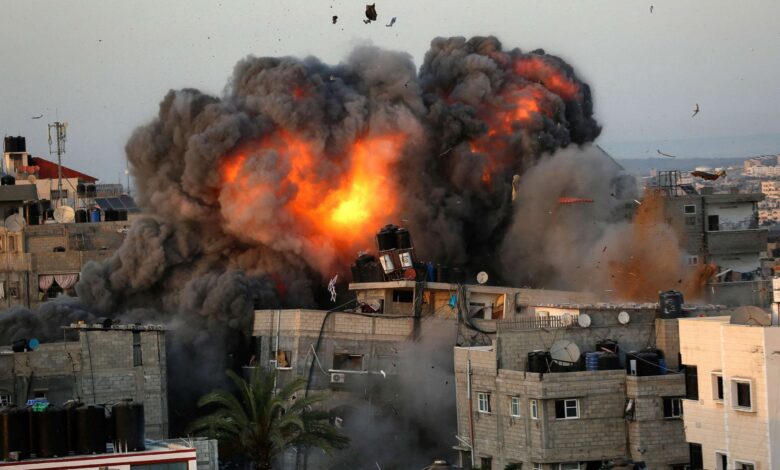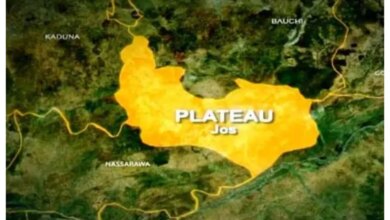Israeli airstrikes kill nine, injure over 170 in Yemen’s rebel-held sanaa

Israeli airstrikes pounded Huthi-controlled Sanaa on Thursday, killing at least nine people and leaving over 170 wounded, Yemeni rebel authorities announced.
The strikes came just a day after the Iran-backed Huthi movement claimed responsibility for a drone attack on southern Israel.
Residents reported deafening blasts and rising plumes of smoke as Israeli jets struck multiple locations around the Yemeni capital.
Reporters said at least three separate sites were hit, marking one of the deadliest escalations since the Huthis began launching missiles and drones toward Israel in solidarity with Palestinians amid the Gaza war.
The Israeli Defense Ministry confirmed the operation, saying it destroyed “numerous terror targets” linked to the Huthis, including military camps, weapons depots, and drone stockpiles.
“We dealt a powerful blow to Huthi terror infrastructure in Sanaa,” Israeli Defense Minister Israel Katz said on X (formerly Twitter), warning that more operations were planned in the coming days.
According to an Israeli military statement, the airstrikes also hit the Huthis’ general staff headquarters, security and intelligence facilities used to coordinate attacks on Israel, and the group’s military media center.
Huthi-run Al-Masirah TV, however, reported that one of the targets was a detention facility housing prisoners and detainees, and claimed that a power station and residential neighborhoods were also struck.
Images shared by the outlet showed shattered buildings, twisted metal, and streets littered with debris.
The Huthi health ministry spokesperson, Anees Alasbahi, updated the casualty count to nine dead and 174 wounded, cautioning that the numbers could rise as rescuers continued to comb through rubble.
Local authorities cordoned off impact zones and warned residents against sharing footage of the strikes, calling it “a service to the enemy.”
The attacks coincided with the broadcast of a weekly pre-recorded speech by rebel leader Abdul Malik al-Huthi, though it is unclear if the timing was deliberate.
The bombardment followed a failed interception of a Huthi drone that struck the Israeli Red Sea resort city of Eilat on Wednesday, wounding 22 people, including two in critical condition.
Israeli Prime Minister Benjamin Netanyahu had vowed a “severe response” to the assault, which marked another escalation in the rebels’ ongoing campaign of missile and drone attacks on Israel and shipping lanes they associate with the country.
The Huthis, backed by Iran, began striking Israeli targets in late 2023, claiming their actions are in support of Palestinians.
In response, Israel has repeatedly targeted Yemeni infrastructure, including ports, power stations, and Sanaa’s airport.
Earlier this month, Israeli strikes in Yemen killed 46 people, including journalists working for pro-Huthi media outlets.
In August, Israel claimed responsibility for the assassination of Ahmed Ghaleb Nasser al-Rahawi, the head of the Huthi government, along with several senior officials.
With tensions rising across the region, both sides appear locked in a dangerous cycle of attack and retaliation, raising fears of a wider Middle East confrontation.





